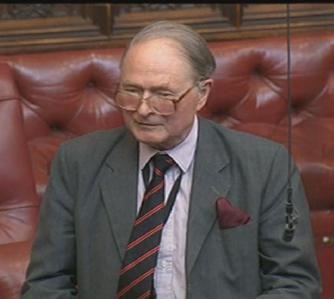The Haileybury Society is saddened to learn of the the death of Sir Bernard Harold Ian Stewart (The Rt. Hon. Lord Stewartby, PC, Kt, RD, FSA, FRSE, FBA (A 49), who has died on 3rd March, 2018, aged 82,
Known to all at school simply as Ian Stewart, he was a Prefect at Haileybury, and played in the 2nd XI (1952, 53 & 54), in the Rackets Pair (1954) and Squash (1952-3). He later became a lifetime Governor of Haileybury. The following obituary is taken from The Times (9 March 2018).
A man who played with a straight bat
Hardworking, self-effacing, effective politician who gave valuable collection of medieval coins to the nation and played with a straight bat
Lord Stewartby had a lifelong passion for coins that began when he was six Ian Stewart was a politician who had a life and interests outside politics, which was probably just as well because as a minister in Mrs Thatcher’s governments he rarely set pulses racing. He was not a natural at the dispatch box and at times it seemed as if he were deliberately trying to make his brief boring. One commentator said he had a knack of emptying the chamber.
Numismatist
Happily he was also a distinguished numismatics scholar and a successful collector of Scottish and English medieval coins. His authoritative book The Scottish Coinage was largely written when he was at school and published in 1955 when he was 19. Given his interest, it seemed?appropriate that it fell to him as a Treasury minister to introduce the new £2 coin in 1986.
Early life
Stewart was born in London in 1935. His parents instilled in him a belief in public service. His father was a professor of pharmacology at London University and came from a family of entrepreneurs and politicians, including a Liberal MP.
From the age of six Ian was already collecting antique coins and this became a lifelong passion. He attended Haileybury and won a scholarship to Jesus College, Cambridge, to read Classics. Although he graduated with a first and continued with his numismatics he was no mere bookworm; he was an accomplished sportsman and a double blue for tennis. Later he played for the Lords/Commons cricket team against a veteran West Indies side whose captain Clive Lloyd said on Test Match Special that Stewartby “played so straight we could not get him out”.
City career with political leanings
He moved into the City, becoming manager of Brown, Shipley and Co, and later a director of the bank. He was also active in the Conservative Party and in 1974 he fought and won Hitchin. He held the seat until 1992, encompassing its reorganisation as North Hertfordshire. Although economically dry he inherited from his forebears a keen social awareness, serving as treasurer of the Westminster Society for the Protection of Children.
Parliamentary career
Colleagues respected Stewart’s probity, hard work, discretion and practical approach to politics. He struck some as self-effacing and friends regretted that he did not do more to promote himself. As Sir Geoffrey Howe’s PPS for much of the 1979 parliament he organised regular meetings with Conservative MPs for Howe when the chancellor was under attack for his tough economic policies.
After a short spell as under-secretary of state for defence procurement he returned to the Treasury to serve as economic secretary under Nigel Lawson between 1983 and 1987. Lawson’s scepticism of the European Commission’s more ambitious schemes for economic integration was more to his liking than Howe’s more ardent Europeanism. Remarkably, even as a minister he made time to write articles for learned journals on, inevitably, numismatics. The British Academy recognised his scholarship and elected him a Fellow in 1981.
In the 1987 parliament he had short spells as armed forces minister and as security minister in the Northern Ireland office. The last post was particularly challenging for his private life because he had three teenage children. His ministerial retirement was prompted by a back injury in early 1989.
Instead of taking to his bed, which might have helped his recovery, he wanted to see through a piece of Northern Ireland legislation; by the autumn he was incapacitated and resigned from the government.
Knighthood and enoblement
He was knighted in 1991 and retired the next year. When he was awarded a life peerage in 1992 he took the title name of Stewartby.
Although not given to strong political views, he regularly warned against British entry to the Exchange Rate Mechanism (ERM) or membership of the single currency and was vindicated, too late, when Britain was forced out of the ERM in September 1992. Out of ministerial office he resumed his financial interests, becoming chairman of Throgmorton Trust and then deputy chairman of Standard Chartered Bank.
Personal life
Family mattered greatly to Stewart. In 1966 he married Deborah Buchan. They first met when she was a secretary at Brown, Shipley and were engaged nine days later. She was a granddaughter of John Buchan, Lord Tweedsmuir, a politician who was better known as the author of The Thirty Nine Steps (1915).
They had three children: Henry is a corporate financier and, before becoming full-time mothers, Lydia worked in financial press relations and Louisa as a headhunter. Buchan’s mother’s house in Broughton, near Peebles, was, latterly, the family home. Like all members of his family he was proud of his Scottish connections and a committed Unionist.
The house in Broughton was the scene for a disaster that shook Stewartby. In 2007 thieves stole more than 1,000 of his Scottish coins, some dating from the 12th and 13th centuries, and the finest private collection of Scottish coins put together. Among those stolen were the first Scottish coins to be minted. They were valued at £500,000, and irreplaceable personally and nationally. Despite the offer of a £50,000 reward they have not been recovered.
The theft and the frustration of his ambition to catalogue his entire collection affected him deeply, but he rallied to publish English Coins 1180-1551 in 2009. Last year he gifted his collection to the Hunterian Museum in the University of Glasgow.
Stewartby relaxed by reading the classics and what his children called “playing with coins”. In his late sixties he was still a formidable tennis player.
His final years were marred by a long and debilitating illness that he bore with fortitude. Perhaps his greatest achievement had been managing to keep his different interests, family, politics, banking and coins, in balance.
His family suspect that he was the only politician to have received an acknowledgement in a gardening book for his advice on making a good compost heap. They add that was the extent of his involvement in the garden.
Photograph: Wikipedia, used under Wikipedia’s “fair use” terms
More from The Haileybury Society
- In memory of Charles Brown (E 77)
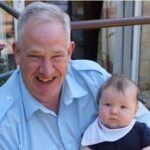
- 24 miles, 3 peaks, 9 hours, 1 amazing cause!

- Zara Everitt (Alb 16)- Netball Super League Grand Final Winners!

- Andreas Payne (K 05) – Founder Liveryman
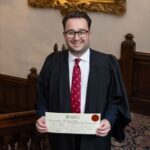
- Gerald Harper (B 42-47)
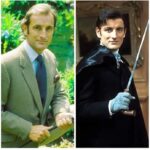
- The Venerable Luke Miller DL (H 79-84)
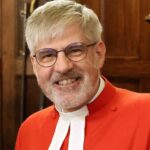
Unless otherwise stated, all content and images on this website and blog © The Haileybury Society, 2024, all rights reserved
Search stories by date
Unless otherwise stated, all content and images on this website and blog © The Haileybury Society, 2024, all rights reserved
